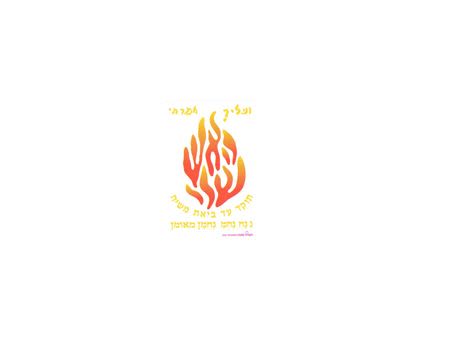
Turnabout
There are no apparent miracles in Megillat Esther. Nothing happened that was above nature, beyond reality. If we were to change the names of the heroes, the story could be...

For two thousand five hundred years, on the 14th of Adar, Jews have made the blessings instituted by our Sages before reading the Megillah: “Blessed are You… Who has sanctified us with His commandments and has commanded us regarding the reading of the Megillah” and “…Who has wrought miracles for our forefathers, on those days at this season.”
But where are the miracles? Reading through the Megillat Esther, it appears as if a political correspondent wrote it, that it was lifted out of the newspapers. God’s name is never mentioned throughout the entire Megillah. For all outward appearances, Esther’s clever plot of exploiting the stupid King Achashverosh’s jealousy, coupled with Mordechai’s political shrewdness, is what really foiled Haman.
The Hebrew word “nes,” which is usually translated as “miracle” can also mean “a banner,” as in, “You have given those who fear You a nes, a banner, to be raised high” (Tehillim 60). A nes, a miracle, is above nature, beyond our ordinary reality.
There are no apparent miracles in Megillat Esther. Nothing happened that was above nature, beyond reality. If we were to change the names of the heroes, the story could be out of today’s headlines.
So what was the miracle?
Our Sages praised Purim to such an extent that Yom Kippurim, the holiest day of the year, is compared to Purim. It’s “K’Purim”—like Purim! (Tikunei Zohar 6).
How can we compare Yom Kippur to Purim? On Yom Kippur we fast and pray. The entire day is devoted to introspection and repentance. On Purim, however, we feast and make merry!
Rebbe Nachman wrote: “There are two types of concealment. When God is concealed in an ordinary way, it is possible to dig and find Him, since one knows that He is concealed. But when God is doubly concealed, in concealment within concealment, this means that the very fact that God is concealed is hidden from the person. Then it is entirely impossible to find Him since he doesn’t even know of His existence.
“This is the meaning of the verse: ‘But I will surely have concealed My face on that day…’ (Devarim 31:18). God is saying: ‘I will conceal the fact that I am concealed.’ The Jewish people will not even realize He is hidden… The actual truth, however, is that even with the concealment, God’s essence must be in there. For we know for certain that nothing can exist without His Life Force” (Likutei Moharan 56:3).
“I will surely have concealed My face”
“I will surely have concealed My face”—the Torah is telling us that a time will come when people will not know God because of the extent of His concealment, as the prophet wrote: “Indeed, You are a God Who conceals Himself…” (Yishayahu 45:15). This concealment will be so great that many won’t even realize that they’re missing something, that there is something they should be looking for. It seems to them that the world operates according to chance; that there is no Divine Providence.
The story of Megillat Esther takes place when the Jewish people were in exile, at the time when God concealed Himself. Therefore, God’s Name is never mentioned in the Megillah. The Purim story teaches about the experience of exile, when world events and personal experiences seem to be controlled by chance.
Our Sages taught us to take this seemingly ordinary story and make the blessing: “Blessed are You… Who has wrought miracles for our forefathers, on those days at this season.” Looking deeper into the story, we’ll reveal the concealed Divine Providence, and we’ll realize the truth of Rebbe Nachman’s words: “The actual truth, however, is that even with the concealment; God’s essence must be there, for we know that nothing can exist without His Life Force.”
This concept is alluded to in the name “Megillat Esther,” which is phonetically related to the Hebrew words gilui ha-hEsther, revealing the concealed. The Megillat Esther reveals the secrets concealed in simple, everyday life.
Understanding these secrets will lead us to understand why Purim is even greater than Yom Kippur. On Yom Kippur we’re uplifted to a high spiritual level, but Purim teaches us the joy of revealing God in very day and every moment, in the most ordinary, natural circumstances, even within the utmost concealment.
This revelation is deeper and more all encompassing than the one-time revelation of Yom Kippur. It reveals to us God’s Presence in the mundane as well as the holy, because He alone controls all of existence.
Turnabout
“And in the twelfth month-which is the month of Adar-on the thirteenth day thereof, when the king’s order and his edict drew near to be put into execution, on the day that the Jews’ enemies looked forward to ruling over them, it was reversed, the Jews should rule over their enemies” (Esther 9:1).
What is the deeper meaning of “it was reversed?” The entire world was reversed so that the inner spiritual side became apparent for all; the “face of God” behind the mask of concealment was revealed.
Thus, we have a commandment to be utterly joyous on Purim. We rejoice that the world has a Director and is not like a rudderless boat. All pain and suffering has an ultimate purpose that will eventually bring us close to Him, our Eternal Benefactor.
In the words of Rebbe Nosson: “It is seemingly difficult—what is this tumult the Sages made concerning the miracle of Purim? There were no open miracles that overturned the laws of nature, as we find by the Exodus and the splitting of the Sea of Reeds… However, open miracles of this sort can only be for a moment, immediately after the miracle God returns to directing His world in concealment within nature.
“But the miracle of Purim involved no change in the laws of nature, and yet we saw the depth of God’s wondrous Providence, even within the strong concealment… This makes the miracle of Purim stronger than any other miracle… It teaches us that everything that happens to us in our day and age is exclusively for our good, even though God conceals Himself in all the troubles and obstacles… keeping us alive and well until the coming of the Moshiach. Then we will see and understand how everything God did was for our good, even in the bitter exile” (Likutei Halachot, Hilchot Tisha B’Av 4:2).
(Taken from http://www.levhadvarim.com)











Tell us what you think!
Thank you for your comment!
It will be published after approval by the Editor.